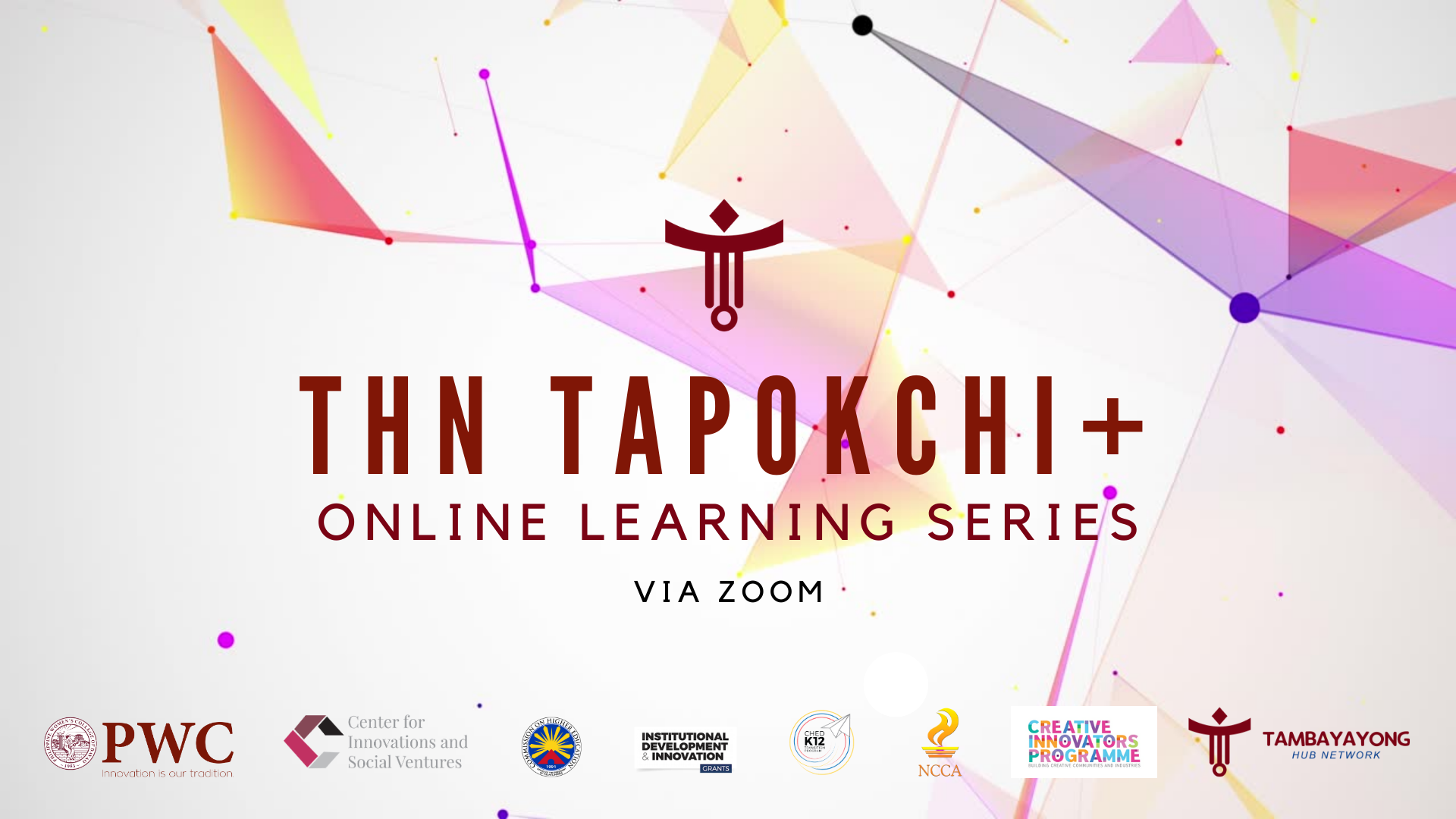PWC CISV launches CHI+ Hub Organizing Capacity Building Training Program for Tambayayong Hub Network

PWC of Davao’s Center for Innovation and Social Ventures (CISV) has set off with the core grounding phase of the CHI+ Hub Organizing Capacity Building Training Program (HOCBTP) for the Tambayayong Hub Network (THN) last January 11-15, 2021.
THN is the collective brand of Heritage-based Creative Enterprise for Social Impact Hubs to be set up by 6 pioneering HEIs in the Davao region being a significant part of the cascading of best practices phase of PWC’s CHED Institutional Development and Innovation Grant (CHED IDIG), further supported by the National Commission for Culture and the Arts (NCCA) and the British Council Creative Innovators Programme. CISV organizes the network, with its Artisanal Heritage Studies and Creative Enterprise Center (AHSCEC) as the lead HEI hub. Through community-based engagements, the HEIs are to develop programs, projects, or products from at least one of the following priority areas: indigenous textile weaving, arts and crafts, gastronomy, farming, and emerging locally-developed technology, systems, and processes.
Member-schools include Kapalong College for Agriculture Science and Technology (KCAST) for Davao del Norte, Davao del Sur State College (DSSC), Davao Oriental State College of Science and Technology (DOSCST), Kolehiyo ng Pantukan (KNP) for Davao de Oro, Southern Philippines Agri-Business and Marine and Aquatic School of Technology (SPAMAST) for Davao Occidental, and PWC of Davao for Davao City.




Representatives from the member schools took part in the phase 1 tapokCHI+ online learning series enriched with talks from esteemed artists and cultural workers. Professor Eric Zerrudo, Director of the University of Santo Tomas Graduate School – Center for Conservation of Cultural Property and Environment in the Tropics (USTGS-CCPET) delivered a talk on Reflecting Our Philippine and Regional Culture, Heritage and Identities and Mapping our Local Culture and its Creative Communities for day 1 and day 2, respectively. IDr. Leonardo Rey Cariño, artist-educator and President of the Philippine Institute of Interior Designers Mindanao, shared his insights on Webbing Indigenous and Ingenious Material Traditions and Contemporary Collaborations in Mindanao. Joining the roster of esteemed resource speakers was Moro multidisciplinary artist and cultural worker Al-Nezzar Ali, who led day 3 with a session on Musing on Moro Design Motifs: Articulating Okkil in Contemporary Expression. As the final speaker of the week for day 4, Carlo Ebeo—Trustee of the National Museum and National Coordinator for the Philippines of the The Mattias Jakobsson Laboratory Department of Evolutionary Biology Evolutionary Biology Center in Uppsala University, Sweden and former NCCA commissioner—gave an engaging discussion on Contextualizing Ethics and Interventions for Localization and Indigenization (Sensitivities, Technicalities, and Difficulties).
In the coming weeks, the training sessions will move on to phases for hub building, industry-initializing, and APSI ideating and incubating, with the final project exhibition and THN summit scheduled in May 2021.
“We are very excited that we are finally rolling this out, as this is a trailblazing moment for the Davao region to pioneer this network,” shared CISV head and THN program director Emi Englis during the launching program, “with opportunities for collaboration and strengthened government and industry support, this is definitely the best rallying time for culture, heritage, and identity to move forward.” RCM

